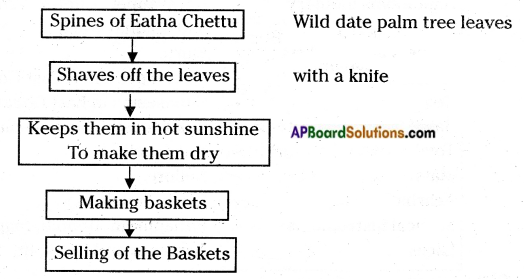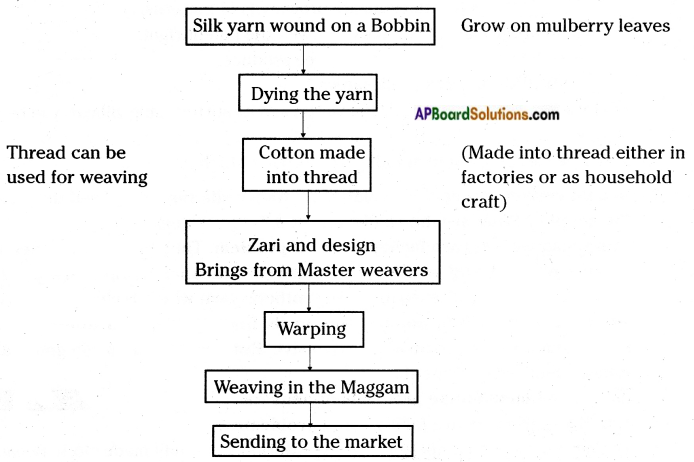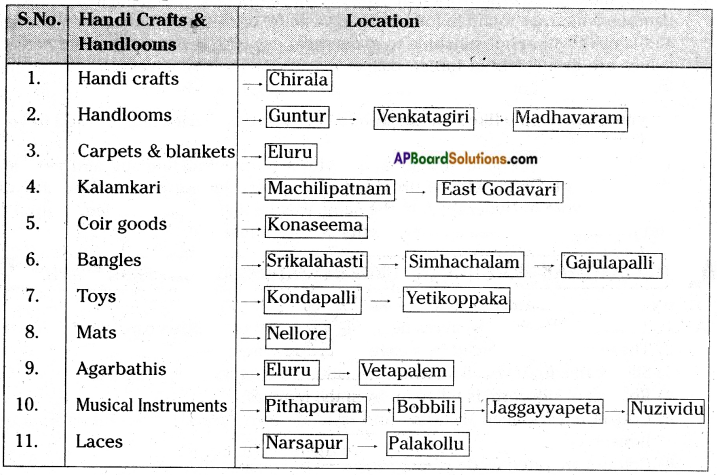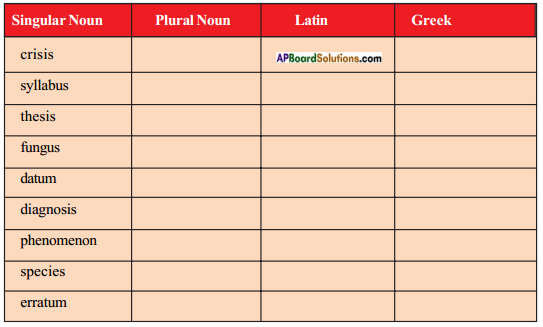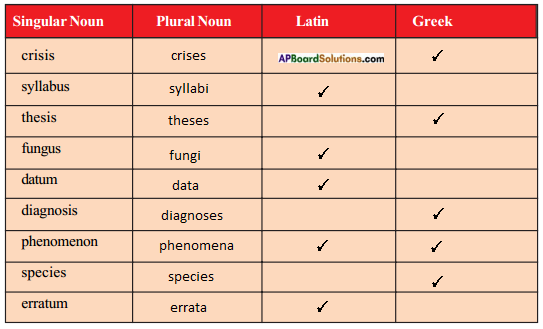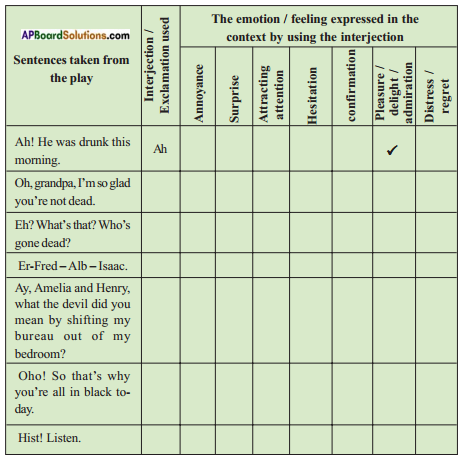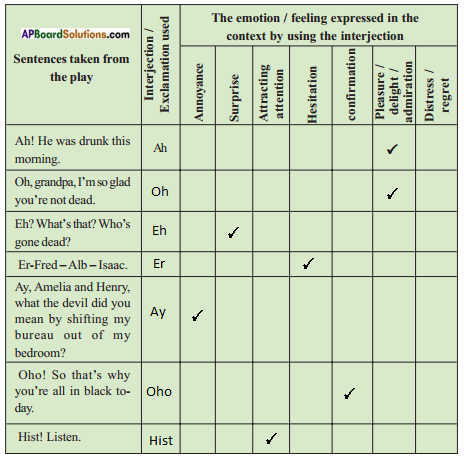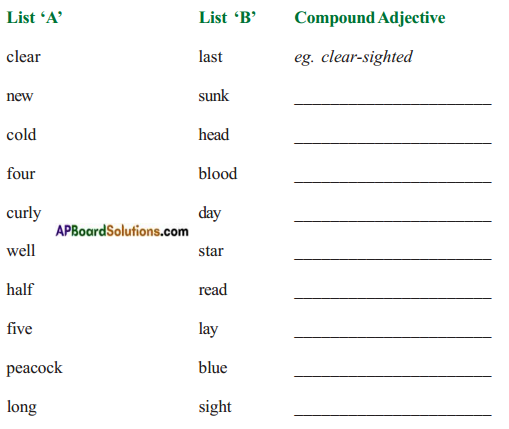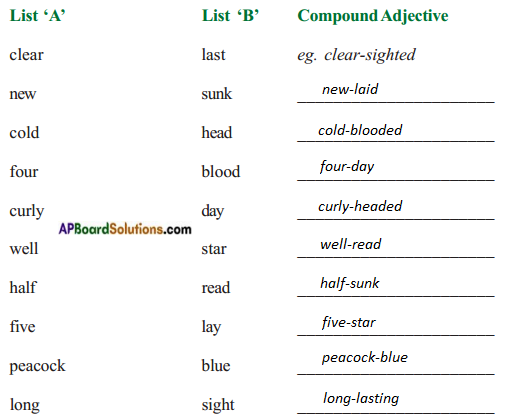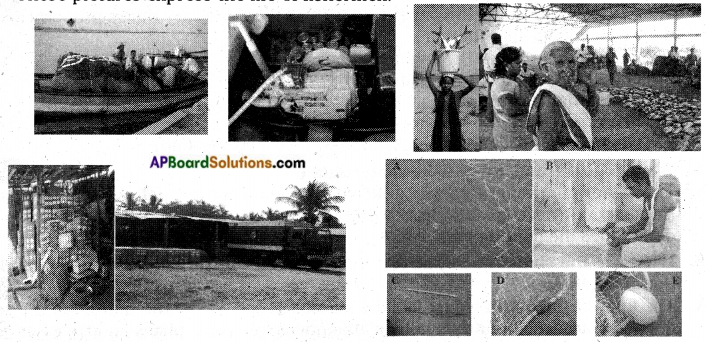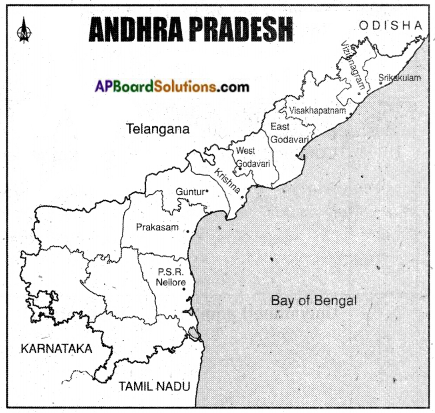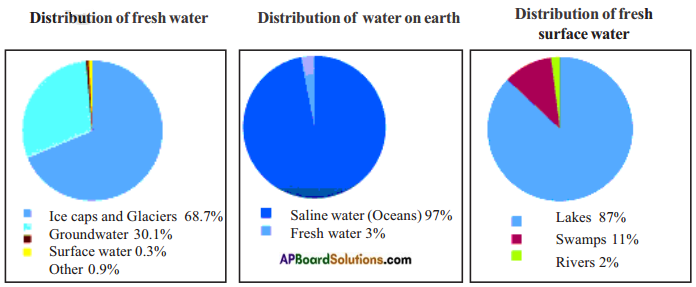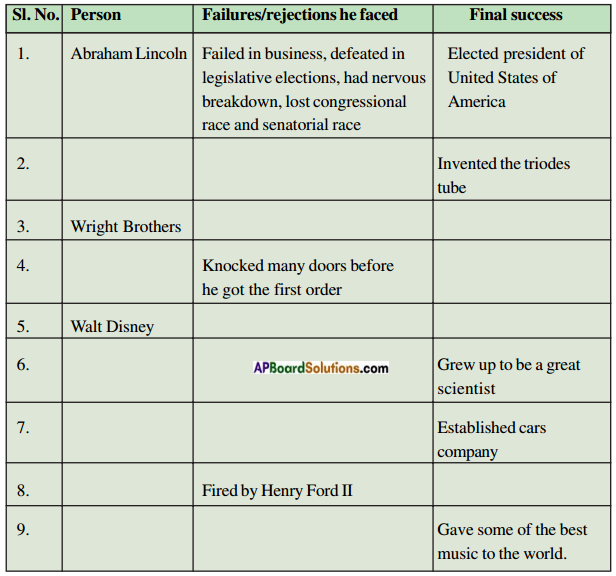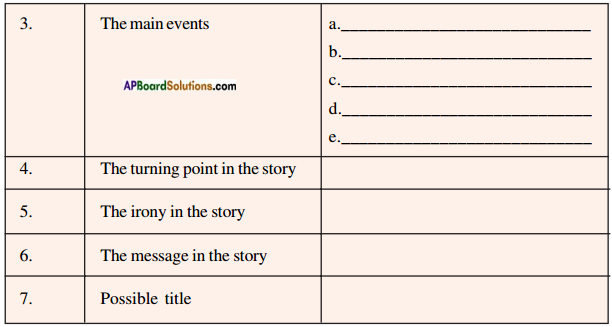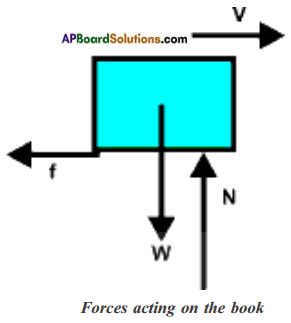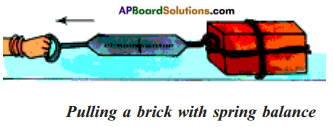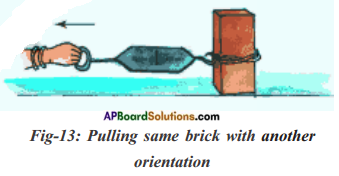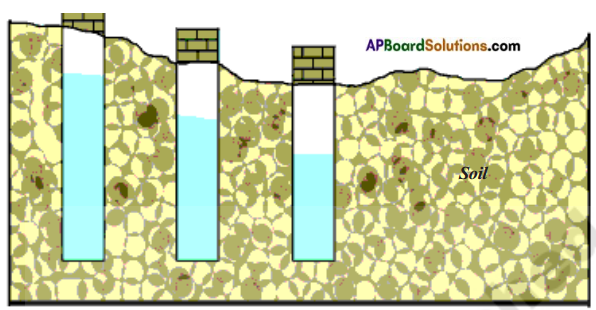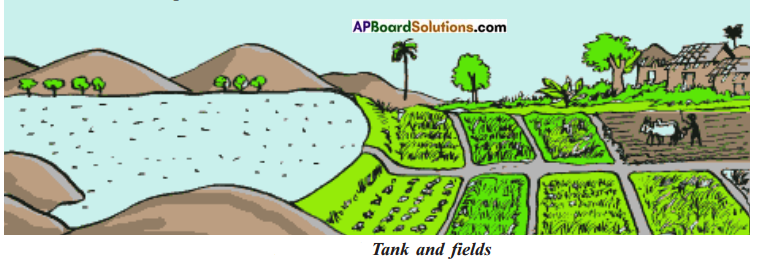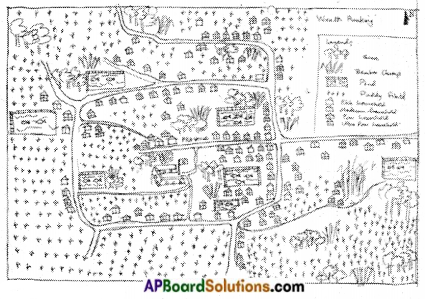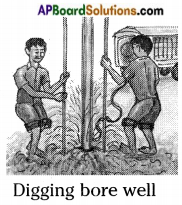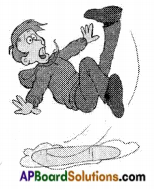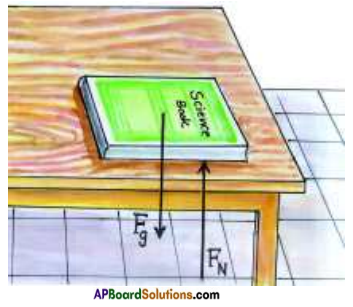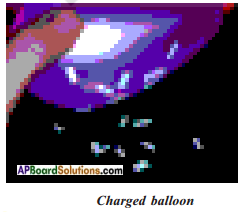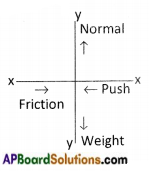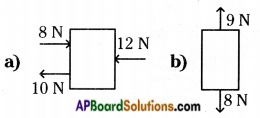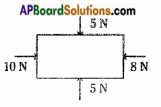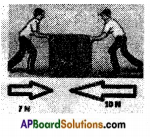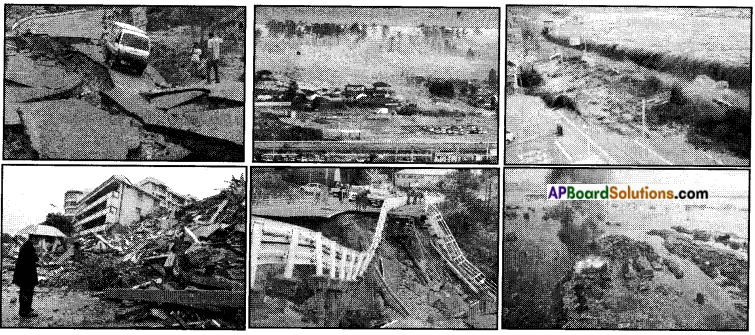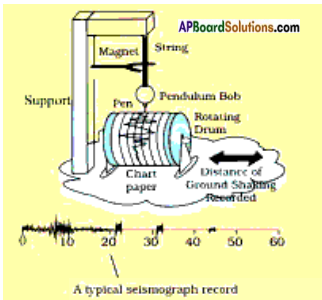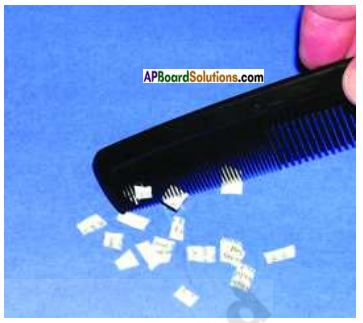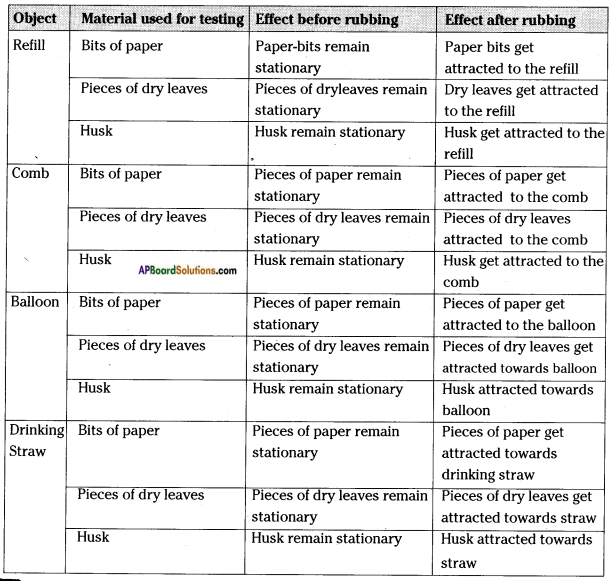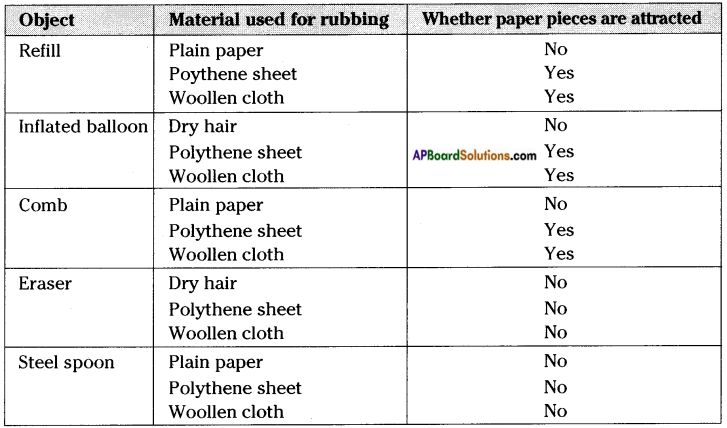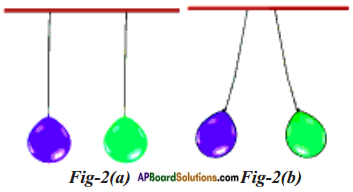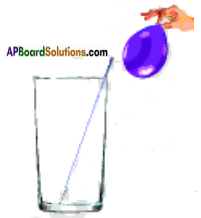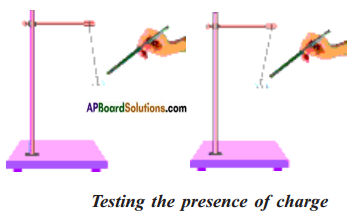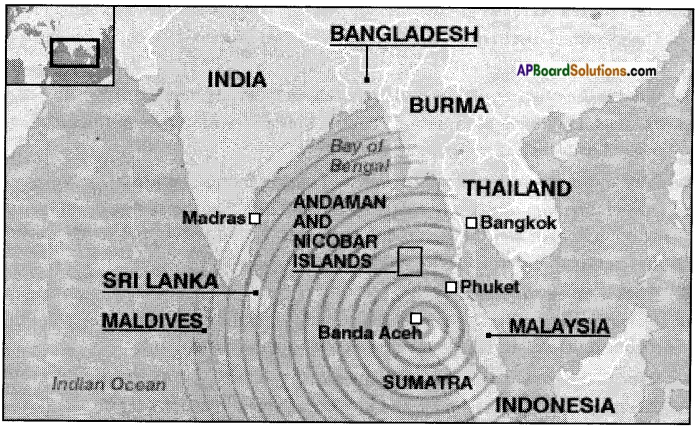AP State Board Syllabus AP SSC 10th Class English Textbook Solutions Chapter 2C The Brave Potter Textbook Questions and Answers.
AP State Syllabus SSC 10th Class English Solutions Chapter 2C The Brave Potter
10th Class English Chapter 2C The Brave Potter Textbook Questions and Answers
Comprehension
Answer the following questions.
Question 1.
What did the tiger think the mysterious creature was? Why did he allow himself bound around the neck with a thick rope?
Answer:
The tiger thought that the ‘leak’ was a mysterious creature. He also thought that it was terrible, dangerous and strong. While the tiger was sleeping, he was suddenly awakened by an angry voice shouting in his ear and felt heavy blows fall upon his head and shoulders. The voice warned him that he would kill him as he had run away. The tiger shivered with fright and thought that it must be the leak’ who had come out of the hut. So the tiger allowed himself found around the neck with a thick rope.
![]()
Question 2.
What made the potter angry? What made him angrier?
Answer:
When the storm began, the drunken potter suddenly remembered that he had left his donkey tied under a tree. He rushed out of his hut to take the animal into the stable but the donkey was not there. This made the potter angry. The potter walked through the wet forest searching for the animal. It became dark and he often stumbled over roots and fallen branches. Each step of the potter made him angrier.
Question 3.
Why did the king make the potter the General of the army?
Answer:
The king of the potter’s country gathered a large army when the war broke out between their country and a much stronger neighbour. But the king realized that it was not strong enough to save his country from defeat. So, he searched for a hero to lead his army. When he asked his ministers’ advice, one of them told him about the brave potter who had captured a tiger with his bare hands. The king sent for him and the potter went with his wife to the capital. The king was pleased to see him and ordered him to lead the army into battle the next day.
Question 4.
Why do you think the sentry feels that the potter is a giant?
Answer:
The sentry saw the potter galloping towards the camp with a tree in one hand and his reins in the other. The sentry thought that he must be the General who had captured a tiger with his bare hands. Hence the sentry felt that the potter was a giant.
Question 5.
Do you think that the potter is really brave or lucky? Give your reasons.
Answer:
I think that the potter is really lucky. The incidents of his catching the tiger and the enemy’s fleeing proved this.
![]()
Question 6.
What is the most humorous and thrilling incident in the story? Write the incident and say why it is humorous and thrilling.
Answer:
The most humorous and thrilling incident in the story is the potter’s catching the tiger. One day he drank more wine after a hard day’s work. Then the storm began and he remembered that he had left his donkey tied under a tree. He searched for it and finally found a sleeping tiger under thatched roof of a hut and thought that it was his donkey. As he was drunk, he couldn’t find the difference between a tiger and a donkey. The incident of his riding the tiger is the most humorous and thrilling incident. The writer created humour by creating situations where the tiger took the word ‘leak’ to be ‘a more powerful and dangerous thing’, the potter didn’t notice the difference between his donkey and the tiger, the potter’s riding the tiger and people mistook the potter to be a brave man. All these things made the incident humorous and thrilling.
Project work
I. You have read the story ‘The Brave Potter’. It is a humorous story. The writer of the story created humour by creating situations where the tiger took the word ‘leak’ to be ‘a more powerful thing’ than him and people mistook the potter to be a brave man.
Work in groups and collect a humorous story. Analyse how the writer created humour in it.
Answer:
Guru Govind had four disciples. One day he told them not to do anything without his permission. One day while they were on their way to a distant city Guru Govind fell asleep in the bullock cart they were travelling in. The Guru’s head rolled from side to side and suddenly his turban slipped from his head and fell onto the road. But the disciples did not make a move to get down and pick it up as their Guru had instructed them not to do anything on their own. After some time, the Guru woke up and his disciples told him about the loss of his turban. He was angry with them. He roared, “If anything falls of next time, pick it up at once !” After some time, the bullock dropped its dung and the four foolish disciples leaped down and picked the dung up. Guru was annoyed with them. Then he made a list of things that could fall off from a moving cart and said to them, “Pick up any of these things if they fall”. He also said, “Don’t pick up anything that is not in the list.” Just then the cart lurched violently and Guru Govind was thrown into a ditch. He yelled, “Pull me out; pull me out”. “We can’t, guruji,” said his disciples, “Your name is not in the list you have given to us.” Guru Govind pleaded with them to pull him but in vain. “We know you are testing us, guruji,” they said to him, “but we are not going to disobey your words. You have told us not to pick up anything that is not mentioned in the list and so we won’t do it.” “Give me the list!” yelled Guru. When they threw the Isit, he included his name among the other things. Then only the obedient disciples pulled out their beloved Guru out of the ditch. Here, the writer creates humour through the innocence and foolishness of the obedient disciples. He tries to produce humour by creating the situations where the obedient disciples misunderstood their guru’s words.
![]()
II. Writing anything funny or humorous is one of the hardest forms of the craft. You may have a great sense of humour, but capturing that in your writing takes skill and practice. Work in groups and recall incidents that made you laugh. Analyse the incidents to find out what made you laugh. It could be the use of some inappropriate word, the way a person is dressed up, an inappropriate timing of an action, etc. Also look at some cartoons and analyse what makes you laugh.
Answer:
There are a lot of humorous incidents we may come across in the stories we read, the movies and cartoons we watch and in our day-to-day lives. If we observe the movements of the famous comedian Charlie Chaplin, we can understand how he created such a humour. His style of walking, using the slapstick, his dress, his hat, his moustache, his face all produce the humour. He is a gifted artiste.
‘Tom and Jerry’ is a series of animated cartoon films. We find humour with the rivalry between a cat (Tom) and a mouse (Jerry), Tom’s chasing Jerry and slapstick scenes. “Tom’s making numerous attempts to capture Jerry which leads to destruction” – it creates fun. The scenes such as slicing Tom in half, shutting his head in a window or a door, stuffing Tom’s tail in a mangle, kicking him into a refrigerator, plugging his tail into an electric socket, sticking matches into his feet and lighting them, etc. amuse all the viewers.
The Brave Potter Summary in English
‘The Brave Potter’ is a very popular Telugu folktale collected by Marguerite Siek. It is a humorous story. A potter is the hero of this story.
It was a dark evening and the sky was full of clouds. The rain was about to start. It was starting to rain and an old tiger ran through the rain for shelter. The tiger crawled under the thatched roof of an old hut and lay down by the door. It was an old woman’s hut which had a leak. When the tiger began to fall asleep, he heard a woman’s voice complaining the leak in her hut was very terrible. She also complained aloud that she would rather meet a tiger than have the leak in her house. When the tiger heard her words, he thought that the ‘leak’ was a very dangerous and strong animal. He was doubtful whether they were all not afraid of him. While these thoughts were lingering in his mind, he fell asleep.
On the afternoon of that day, a potter had drunk more wine and no longer felt tired. When the rain began, he suddenly remembered that he had left his donkey tied under a tree. He rushed to the spot but couldn’t find it. He started searching for it. While he was searching, he often stumbled over roots and fallen branches. He felt angrier and wanted to give the donkey a good beating when he caught it. He reached the old woman’s hut and mistook the tiger for his donkey. He couldn’t notice the difference between a donkey and a tiger as he had drunk. He kicked and beat the sleeping tiger. The tiger thought that it must be the ‘leak’ who came out of the hut. The tiger shivered with fright and wanted to do as the ‘leak’ said. The potter jumped onto the frightened tiger’s back, rode it home and tied it up with the iron chain.
![]()
The next morning, the news spread throughout the village that the potter had caught a tiger and tied it to a tree in his yard. All of them praised his courage. But the potter couldn’t understand how it all had happened! They didn’t believe him saying that he had only brought his donkey home. The villagers even praised him for his modesty. A few years later a war broke out. The enemy army was much stronger. The king was worrying how he could save the country. He wanted a brave man to lead the army. One of his ministers told the king about the brave potter. He called for the potter, made him the General of the army and ordered him to lead the army into battle the next day. But the potter was worrying very much as he never carried a sword, nor had he ever ridden a horse. Hence, he wanted to practise riding the horse. He woke up early the next morning and climbed onto the horse’s back with great difficulty. Then he asked his wife to tie his feet to the stirrups. His wife bound his feet tightly to the stirrups and tied the two stirrups together. She also tied him to the saddle. Suddenly, the horse jumped free and galloped out of the stable. The potter held to the horse’s neck tightly and prayed to all the gods to save his life.
The horse galloped through the streets, the city gates and began to head for the enemy’s camp. Though he tried to pull on the reins and control the horse, the horse didn’t stop. The potter grabbed a branch when they passed a young tree. When a sentry from the enemy camp saw him with a tree in one hand and the reins in the other, he thought that the horse-rider must be the General who captured a tiger with his bare hands. Immediately he made loud shouts warning his men about the famous Tiger-General who was rushing towards them to attack. The frightened soldiers fled. Even their king followed his soldiers leaving a letter in the tent. The potter was surprised to find the camp empty. He brought the letter and gave it to his wife. He requested her to take the letter to their king and tell him the enemy had run away. His wife gave the letter to the king and he read it. He praised the potter and rewarded the potter so well that he didn’t need to work again.
The Brave Potter About the Author
Marguerite Siek was a great story teller. He was very much interested in telling folk and mythological stories of Asia. He travelled across many Asian countries and collected interesting short stories from various countries and published them in English. He translated many famous Indian folk stories into English. The present short story The Brave Potter’ is a very popular Telugu one collected by him from India.
The Brave Potter Glossary
blinding (adj): very bright
thatched (adj): covered with dried straw
nod off (phr.v): fall asleep
leak (n): a small hole that lets liquid or gas flow into or out of something
bound (v): tied someone so that they couldn’t move or escape
scream (v): to make a high loud noise with one’s voice because one is hurt, frightened, excited etc.
head (v): go to or travel towards a particular place
palm-wine (n): toddy/fermented palm juice drunk by village folk (kallu In Telugu)
![]()
stable (n): a building where horses are kept
grumble: to keep complaining in an unhappy way
stumbled: walked In an unsteady way and often almost Fell
muttered (v): spoke something that cannot be heard
groaned (v): made a long deep sound because one is in pain. upset or disappointed
Your Majesty (phr): way of addressing a king or a queen
saddle (n): a leather seat for a rider on a horse
stirrups (n): metal rings that hang down on each side of a horse’s saddle, used to support the riders foot
pawing (v): touching something repeatedly with a paw
hooves (n): the hard parts of the feet of some animals like horses (‘Hooves’ is the plural form of ‘hool.)
crashing: falling
reins (n): long leather bands held by a horse rider to control it
sentry (n): guard/a soldier whose job is to guard something
uprooted (v): pulled a tree or a plant out of the ground
deserted (adj): empty and quiet because flO people are there
cheering crowds (phr): a large gathering of people shouting in joy
